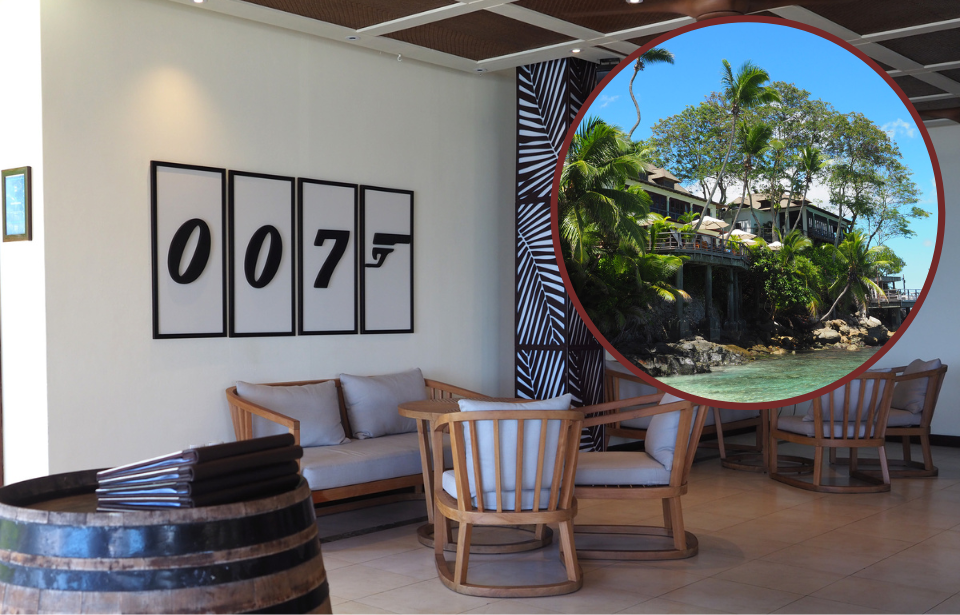When James Bond author Ian Fleming experienced a period of writer’s block, he left his home in London, United Kingdom and traveled to the Republic of Seychelles. There, he relaxed and enjoyed the warmth of the Indian Ocean, while working on a story for a national newspaper.
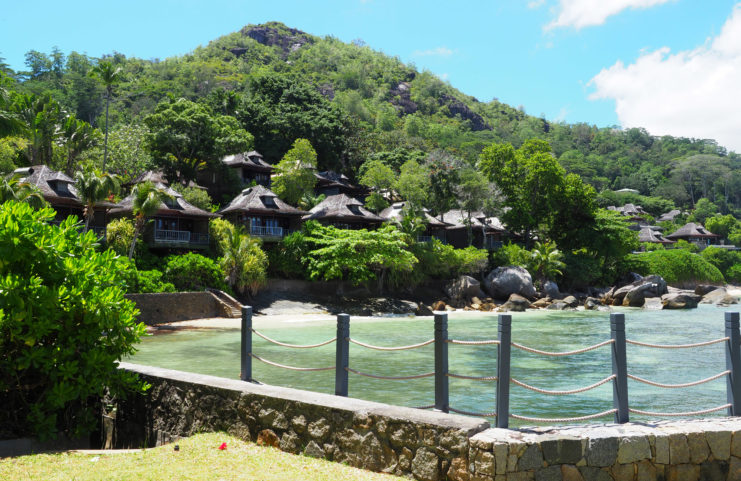
Staying at what’s now the Hilton Seychelles Northolme Resort & Spa in 1958, on the island of Mahé, Fleming began work on his eight novel in the James Bond series, a collection of short stories released under the title, For Your Eyes Only. One particular tale, The Hildebrand Rarity, takes place at the holiday destination.
The story is set entirely on Seychelles. In it, James Bond is tasked with surveying the area for the British Royal Navy, which wants to construct a base there. During the trip, he meets local man Fidèle Barbey, who hires the MI6 agent to aid in the search for a rare fish.
The Hildebrand Rarity‘s villain, the sadistic American millionaire Milton Krest, lives onboard a luxury yacht, The Wavekrest, and is the one interested in finding the rare fish. He cares not if they catch one dead or alive – his ultimate aim to sell it to the Smithsonian Institution for a high and tax-free price.
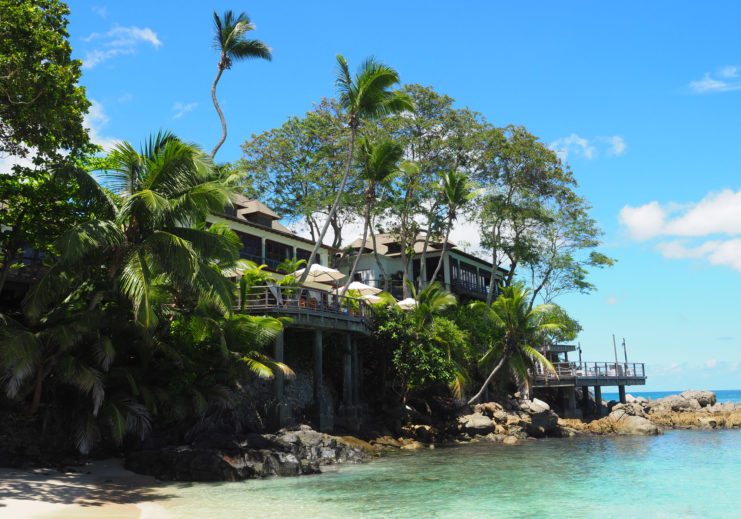
Bond helps Barbey pilot The Wavekrest and, in the end, Krest manages to catch one. However, he’s only able to do so by pouring poison into the water, killing hundreds of fish in the process. Bond finds this abhorrent, and also becomes upset after learning the millionaire verbally and physically abuses his wife, Elizabeth.
Krest goes on to celebrate his success with Bond, Barbey and Elizabeth, but after many drinks begins to insult the trio. Before coming to blows, everyone turns in for the night, only for Bond to be awoken by loud noises.
Investigating the source of the sound, the MI6 agent discovers Krest has been murdered, with the Hildebrand Rarity stuffed down his throat. Fearing an inquest could put him in the frame, Bond cleans up the scene and dumps the millionaire’s body overboard, hoping it’ll appear as though he fell after a rope holding up his hammock snapped.
Returning to port, Bond is invited to sail on with Elizabeth to Mombasa. Despite believing she may be the killer, he agrees. As a way of getting back at her late husband, Elizabeth opts to send the Hildebrand Rarity to The British Museum, instead of the Smithsonian.
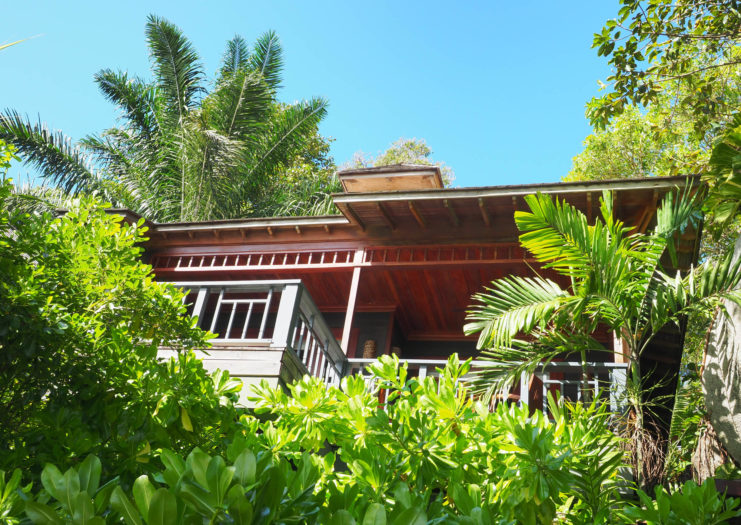
The Hilton Seychelles Northolme Resort & Spa is located on a rocky outcrop at Beau Vallon Bay, Mahé. In the mid-1950s, it was one of the first hotels to set up shop on the island. It’s blessed with extensive views of the coral reefs and azure blue seas the Indian Ocean is so famous for. With a number of cozy private beaches, the holiday destination offers a delightful place where Bond himself would feel at home. Plus, the bar still serves up 007-style cocktails.
Today, it’s possible to check into the room Fleming stayed in, Room 114. However, due to copyright reasons, it’s not called the “Ian Fleming Suite,” despite it carrying the name for a period of time. The famed author’s memory is recorded on the menu of the Ocean View Bar, with such items as Bond Tempura, a vegetable snack; Fleming Fish and Chips; and a sweet treat known as “La Bombe Surprise.”
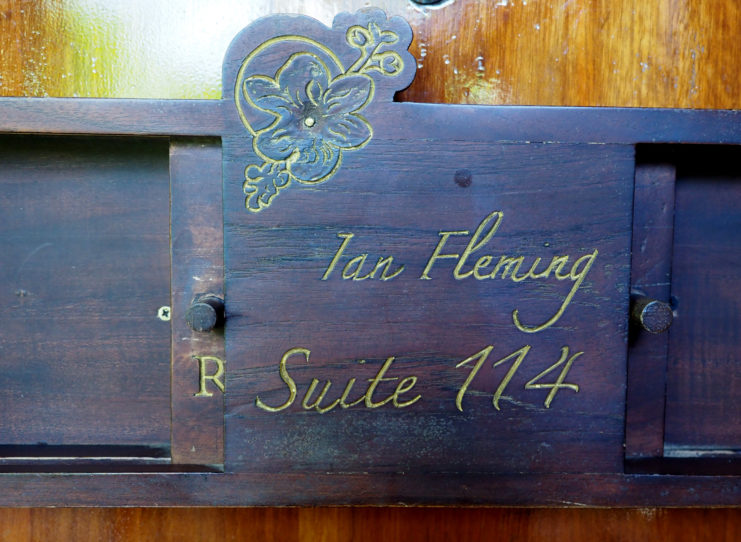
It was in April 1958 that Fleming flew to the Seychelles for an assignment for the Sunday Times. He was to report on a treasure hunt, which turned out to be a bit of a flop. However, the famed author used his time wisely, noting many of the details of the island and including them in his new James Bond story.
Fleming also added in what he witnessed during a visit to Pedro Cays, a series of islands off the coast of Jamaica. There, he saw two scientists use poison in a similar manner while collecting samples.
Grabbing names from past and present, Fleming used “Milton Krest” for his villain. “Milton” was the codename for a Greek captain who, at personal risk, ferried British soldiers and agents past German patrol boats during the Second World War. He went on to receive the Distinguished Service Order (DSO), plus an Order of the British Empire (MBE).
A further Seychelles link came from “Krest,” the name of the tonic and ginger beer Fleming drank while staying at Northolme.
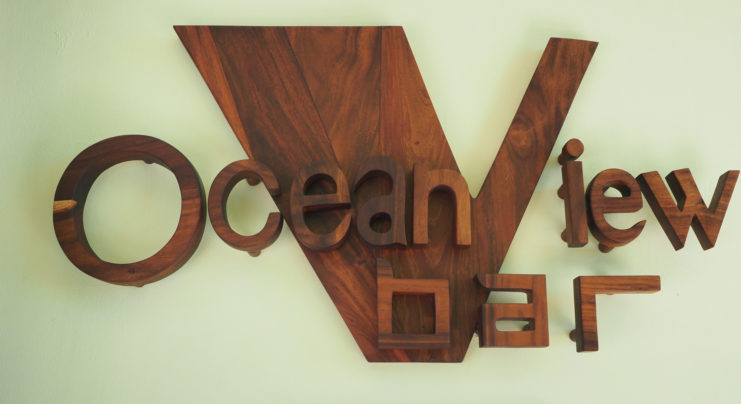
Fleming was well-connected in the British upper classes. During World War II, he served with the Royal Navy as the personal assistant to Rear Adm. John Godfrey, Director of Naval Intelligence. James Bond’s “M” is said to be based on Godfrey, who had Fleming serve as his liaison to numerous government agencies. This led the author to cross paths with the Special Operations Executive (SOE) and the precursor to the CIA.
In 1942, Fleming formed the No. 30 Commando, a unit made up of special intelligence troops. Based on a German group headed by SS-Obersturmbannführer Otto Skorzeny, which he called “one of the most outstanding innovations in German intelligence,” they were tasked with positioning themselves near the frontline and seizing enemy documents.
More from us: Norman Lear Flew 52 Combat Missions with the US Army Air Forces During WWII
Following the success of the No. 30 Commando, the Target Force – better known as “T-Force” – was formed. Its infantry section consisted, in part, of the 5th Battalion, King’s Regiment, and Fleming sat on the committee tasked with selecting targets. Given all he was involved in, it’s certainly possible that his service gave him the inspiration for the James Bonds series.
